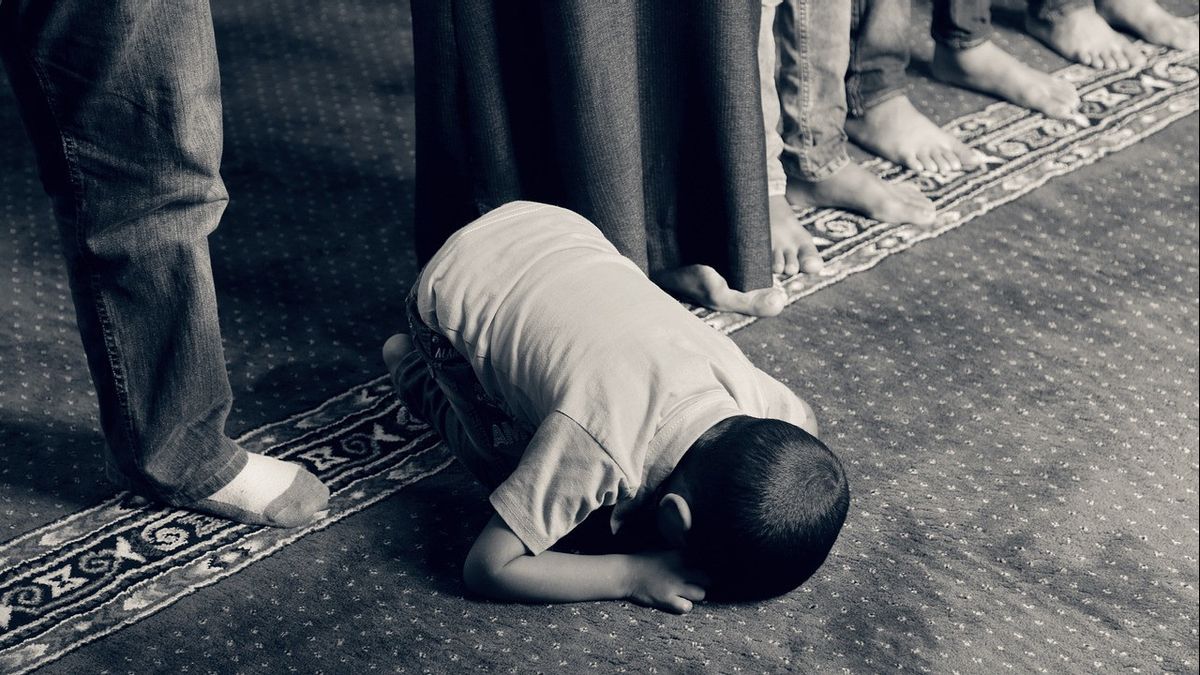YOGYAKARTA A Muslim is advised to do a practice whose reward is equivalent to a pilgrimage if you do not have the ability to go to the Holy Land.
Although the reward is equal, this practice does not invalidate obligations or as a substitute for the pilgrimage. So that for Muslims who have not carried out the pilgrimage, it is still mandatory for those who are able, both physically and financially. This is because the pilgrimage is one of the five pillars of Islam.
In a hadith narrated by Imam Al-Bukhari, the Prophet SAW said:
You can't help yourself, you can't help yourself, you can't help yourself, you can't help yourself, you can't help yourself, you can't help yourself, you can't help yourself, you can't help yourself, you can't help yourself, you can't help yourself, you can't help yourself, you can't help yourself, you can't.
Meaning: From Abdullah bin Umar radhiyahu anhuma -, he said, I heard that the Prophet SAW said'Islam was built on five: witness that there is no God who has the right to worship correctly except Allah and Muhammad is the messenger of Allah, establishing prayers, performing zakat, going on a pilgrimage, and fasting Ramadan.
So, what are the practices that are equivalent to going on a pilgrimage? Let's look at the full information below.
Quoted from the Muhammadiyah Voice page, the following are some of the practices that are equivalent to the pilgrimage.
1. Isyraq Prayer
The first practice is the isyraq prayer, which is the two rakaat prayers which are performed some time after sunrise. And done after iktikaf at the mosque after performing the dawn prayer.
In a hadith narrated by Imam Thabrani, Rasulullah SAW said:
You can't help it, you can't help it, you can't help it, you can't help it, you can't help it, you can't help it, you can't help it, you can't help it, you can't help it, you can't help it, you can't help it, you can't help it, you can't help it, you can't help it, you can't help it, you can't.
Meaning: 'From Abu Umamah radhiyallahu anhu, Rasulullah SAW said: 'Whoever performs the dawn prayer in congregation'ah at the mosque, then he remains silent in the mosque until he performs the sunnah sunnah prayer, then he is like getting the reward of a person who performs the pilgrimage or performs the umrah perfectly'.
2. Five-time congregational prayers at the mosque
The five-time congregational prayer at the mosque also includes practices that are equivalent to the pilgrimage. In a hadith narrated by Imam Abu Daud, the Prophet SAW said:
You can't help yourself, you can't help yourself, you can't help yourself, you can't help yourself, you can't help yourself, you can't help yourself, you can't help yourself, you can't help yourself, you can't help yourself, you can't help yourself, you can't help yourself, you can't help yourself, you can't.
Meaning: 'Whoever leaves his house in a state of purification for the obligatory prayers of the congregation, then the reward is like the reward of a person who performs the pilgrimage and is praying. And whoever leaves for the sunnah prayer that he does not do except because of that, then the reward is like the reward of a person who prays. And (who performs) prays after other prayers, does not do anything in vain between the two, then the reward is written in 'illiyyin'.
SEE ALSO:
3. Go to the mosque with the intention of seeking knowledge
Going to the mosque with the intention of seeking knowledge is also a special nature. A Muslim who does this practice will get a reward equivalent to going on a pilgrimage.
As stated in the hadith narrated by Imam Thabrani. The sound of the hadith, namely:
Let's talk about it, let's talk about it, let's talk about it. Let's believe it. Let's take care of it. Let's take care of it, let's take care of it.
Meaning: 'Whoever goes to the mosque, there is nothing he wants except to learn one good thing or know his knowledge, then he will get a perfect hajj reward'.
This is information about practices whose rewards are equivalent to the pilgrimage. Hopefully this article can add insight to the loyal readers of VOI.ID.
The English, Chinese, Japanese, Arabic, and French versions are automatically generated by the AI. So there may still be inaccuracies in translating, please always see Indonesian as our main language. (system supported by DigitalSiber.id)


















